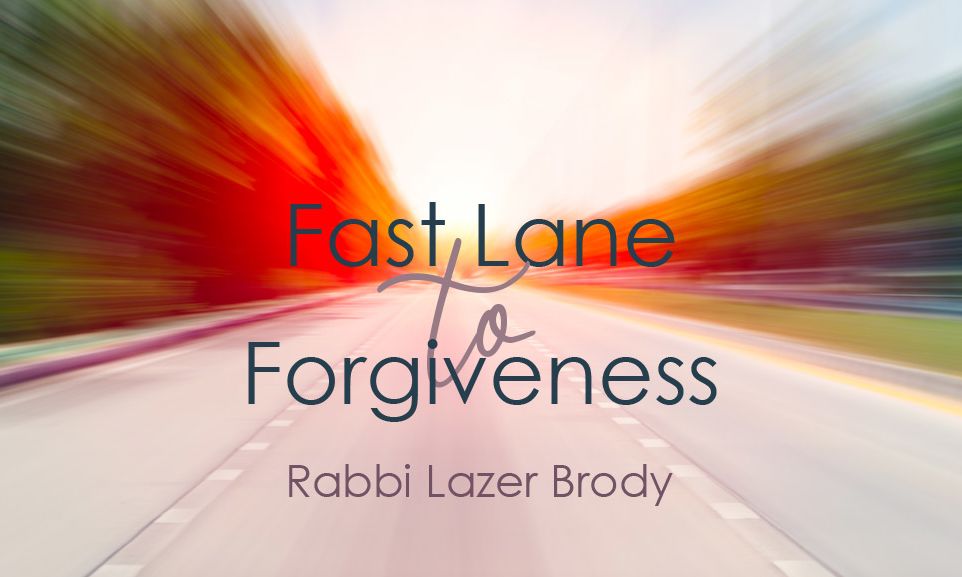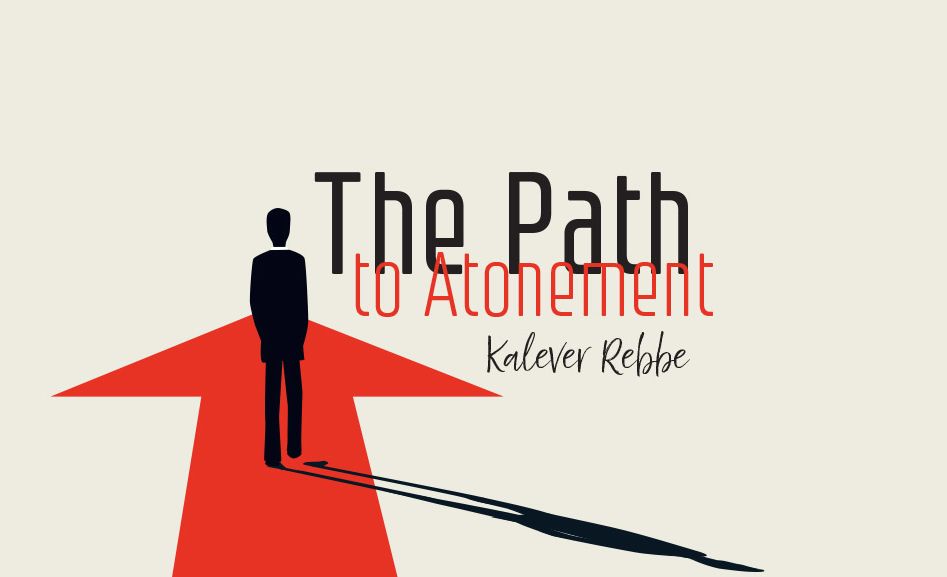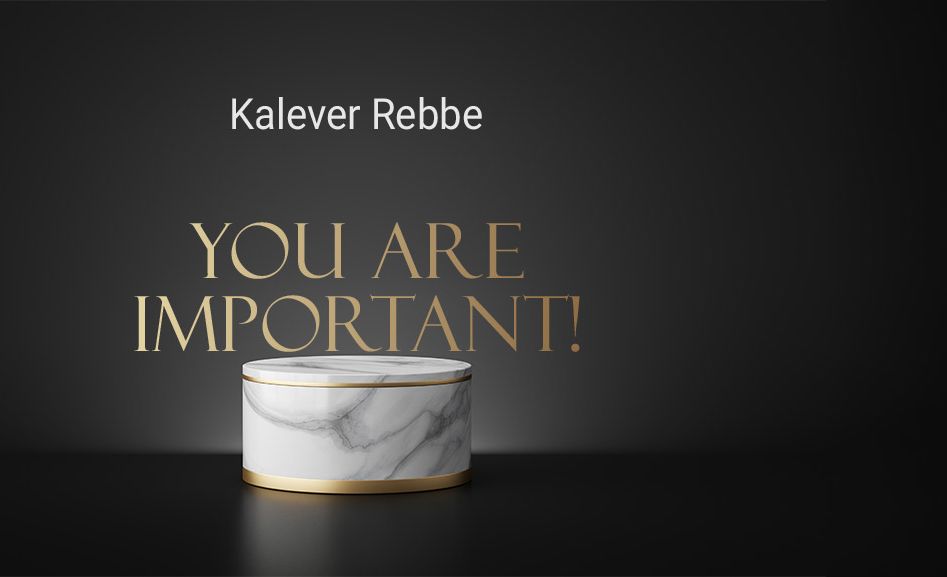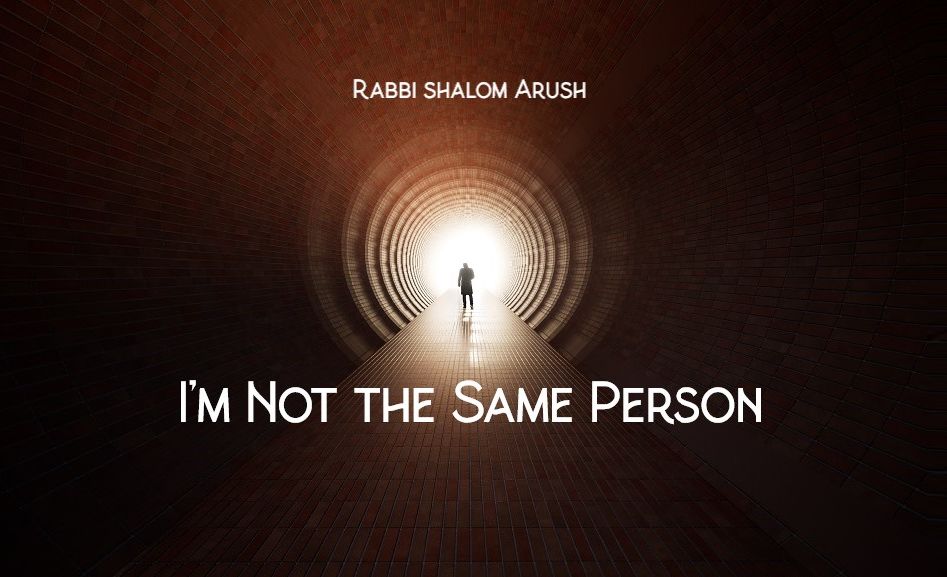
Fast Lane to Forgiveness
People who are stressed out by Yom Kippur think that teshuva is something heavy that normal people can't do; but, there's a fast lane to forgiveness that makes life easy…

What a sweet life we live!
People who are stressed out by Yom Kippur have never had the privilege of learning what Yom Kippur is all about. That’s understandable; no one ever explained the true and simple meaning of Yom Kippur to them. With Hashem’s help, let’s rectify that.
Imagine that a person has just been tried and convicted by a judge and jury of a dozen counts of the worst felonies imaginable. He now faces sentencing, which could be anywhere from 35 years to life imprisonment, with minuscule chances for parole.
During his first depressing day in jail, where he begins his nervous 10-day countdown until his sentencing hearing, the jailer summons our “hero”, and says that the prisoner-rehabilitation officer wants to speak to him. Bewildered, not knowing what to expect and with hands bound, he followed the jailer to the office of the rehab officer.
Unlike everyone else in the penal system, the rehab officer had a kind face and a warm smile. He motioned for the jailer to leave the room. Now, alone with the prisoner, the rehab officer offered his “guest” a warm cup of tea and some home-baked oatmeal cookies. Astonished, the prisoner thought he was dreaming. Is this prison? Cinnamon tea and oatmeal cookies? Maybe they’re just fattening me up for the slaughter…
As he read the prisoner’s mind, the rehab officer said, “Don’t be afraid – drink the tea and enjoy the cookies. Meanwhile, I have a deal for you that you won’t be able to refuse.” He opened the prisoner’s file, which was just about as thick as the Metropolitan New York phone book, and reviewed the prisoner’s  infamous past.
infamous past.
“If we go the conventional route, you’ll be growing old within these reinforced concrete walls,” said the rehab officer, as the prisoner listened dejectedly. “But, alongside the conventional route where there’s little chance of parole, there’s a fast lane to a complete and total presidential pardon…”
The prisoner sat up in his chair with wide-open eyes. Could it be? How could 35 years to life be erased in one fell swoop?
“You see,” explained the rehab officer, according to your psychiatric profile, you have one core problem that is the root of all your crimes. If we can show the court that you’ve been counseled, treated, and completely rehabilitated, then a complete presidential pardon is guaranteed.
“Do you mean that I can change overnight?”
“Not completely, “ said the rehab officer. “no one changes overnight. But, as soon as you recognize your problem, admit to your weakness and shortcoming, and do your utmost to rectify, the court will recommend a total pardon for you. You’ll be a free man, but you must commit with all your heart to occupy yourself with good endeavors and make crime a figment of the past. Do you agree?”
* * *
Who would be the fool that wouldn’t agree? Does our above parable seem to be something from Fantasy Land in Disney World? It’s not at all.
Rosh Hashanah is the Day of Judgment for all of creation. Some people walk away with severe judgments, with their respective punishments hovering over their heads like a sharp sword resting on their jugular vein, Heaven forbid. But, Hashem gives us a day when we can be totally pardoned, no matter what we’ve done and whatever punishment we’ve incurred. That wonderful day is Yom Kippur, the Day of Atonement.
As in our above parable, Rebbe Nachman of Breslev explains that there’s one root cause of all our transgressions, and that’s Pgam Habrit, or breach of personal holiness. Pgam Habrit makes a person insane, and a person doesn’t sin – according to the Gemara – unless a spirit of insanity enters his soul. That’s why Rebbe Nachman calls the rectification of our “covenant”, which is personal holiness, Tikkun Haklali – the general remedy. By correcting our personal holiness, we rectify all of our sins and are forgiven for them completely.
For men, tikkun habrit – personal holiness – entails guarding one’s eyes, refraining from contact with the opposite sex outside the context of marriage, and refraining from spilling one’s seed outside the context of conjugal relations. For women, personal holiness entails modesty in dress and deportment and also refraining from contact with any man outside the context of marriage.
Yom Kippur and tikkun habrit are closely interrelated. Rebbe Natan explains in Likutei Halachot that Yom Kippur is the anniversary of tikkun habrit, for this was the day that Abraham had his “brit”, and came into a holy covenant with Hashem by way of his circumcision. Although “brit” literally means “covenant” in Hebrew, we call circumcision “brit” (or bris in Ashkenazi pronunciation), because this signifies our commitment to the covenant of personal holiness with Hashem.
On Yom Kippur, we are commanded to refrain not only from eating, drinking, wearing leather shoes, and using creams and oils on our bodies, but from marital relations as well. This symbolizes a jump-start on personal holiness. That’s also why we wear white on Yom Kippur, explains Rebbe Natan, to signify our lily-white holiness just like the angels.
People think that it’s impossible to do genuine teshuva for every breach they’ve done in every one of the 613 commandments. And who knows what our criminal files look like in the Heavenly archives. Yet, as Rebbe Natan elaborates on Rebbe Nachman’s teachings, by doing our best to improve out tikkun habrit, our personal holiness, we atone for the source of all of our sins and receive complete, unconditional pardon from Hashem himself. A flesh-and-blood president pardons, but Hashem gives big rewards in addition to the pardon. That’s the fast lane to forgiveness.
Now do you understand why we live a sweet life? With this in mind, fasting is a cinch and we pray with joy, for as my beloved teacher Rav Shalom Arush says, there’s no teshuva without joy.
May we all be sealed for the best New Year we ever had, amen!







9/24/2012
What About Women? How does this apply to women?
Editor's answer:
Personal holiness is also the fast lane of forgiveness for women – modesty in dress and behavior, covering her hair, chastity of body and mind before marriage and fidelity of body and mind after marriage.
9/24/2012
How does this apply to women?
Editor's answer:
Personal holiness is also the fast lane of forgiveness for women – modesty in dress and behavior, covering her hair, chastity of body and mind before marriage and fidelity of body and mind after marriage.
9/24/2012
thank you Rabbi Brody I've been having such foggy confused 10 days, I was almost depressed. with this article you uplifted me and my spirit. thank you rabbi and thant you hashem! Gmar chatima tove lechol am israel.